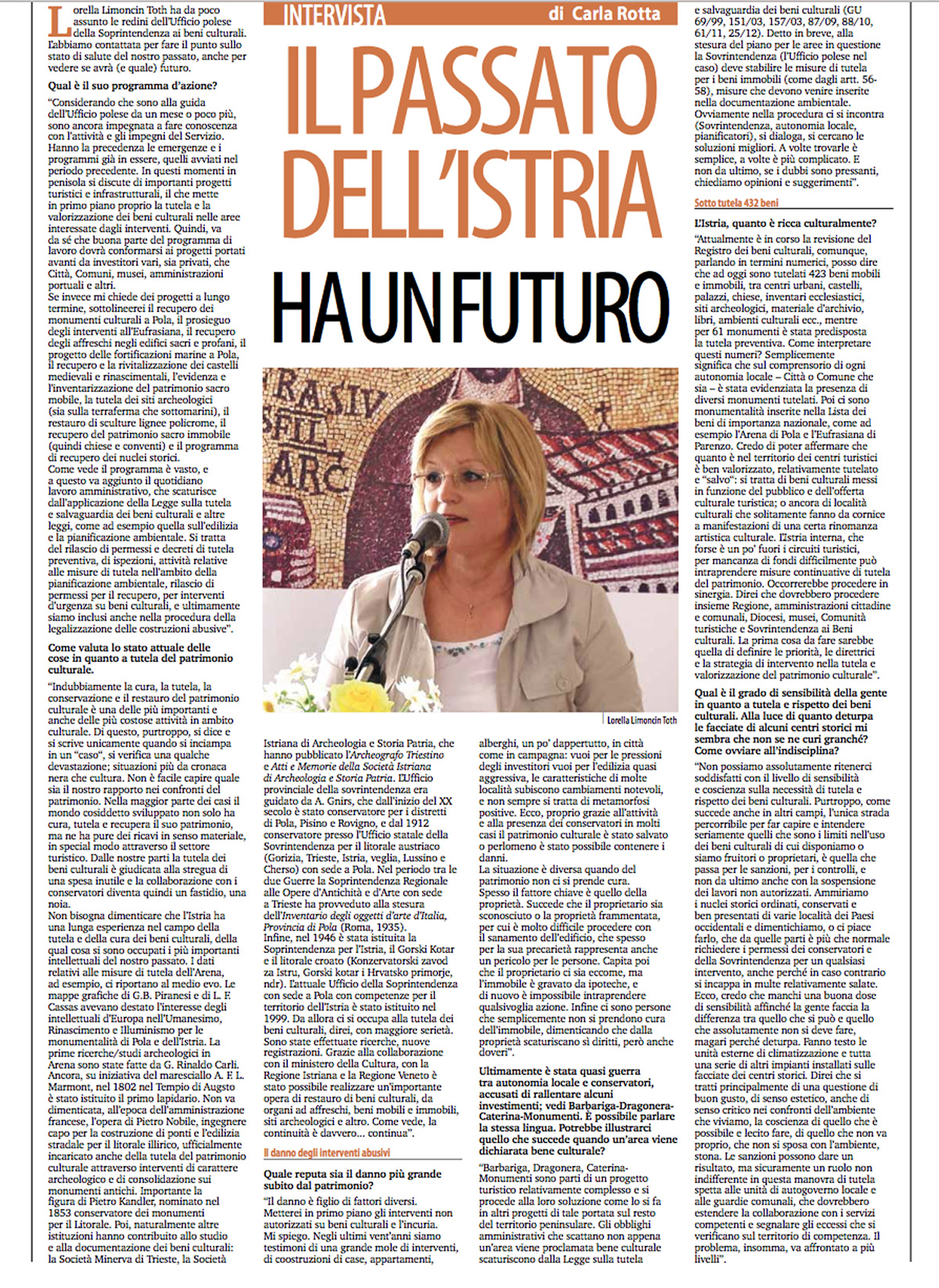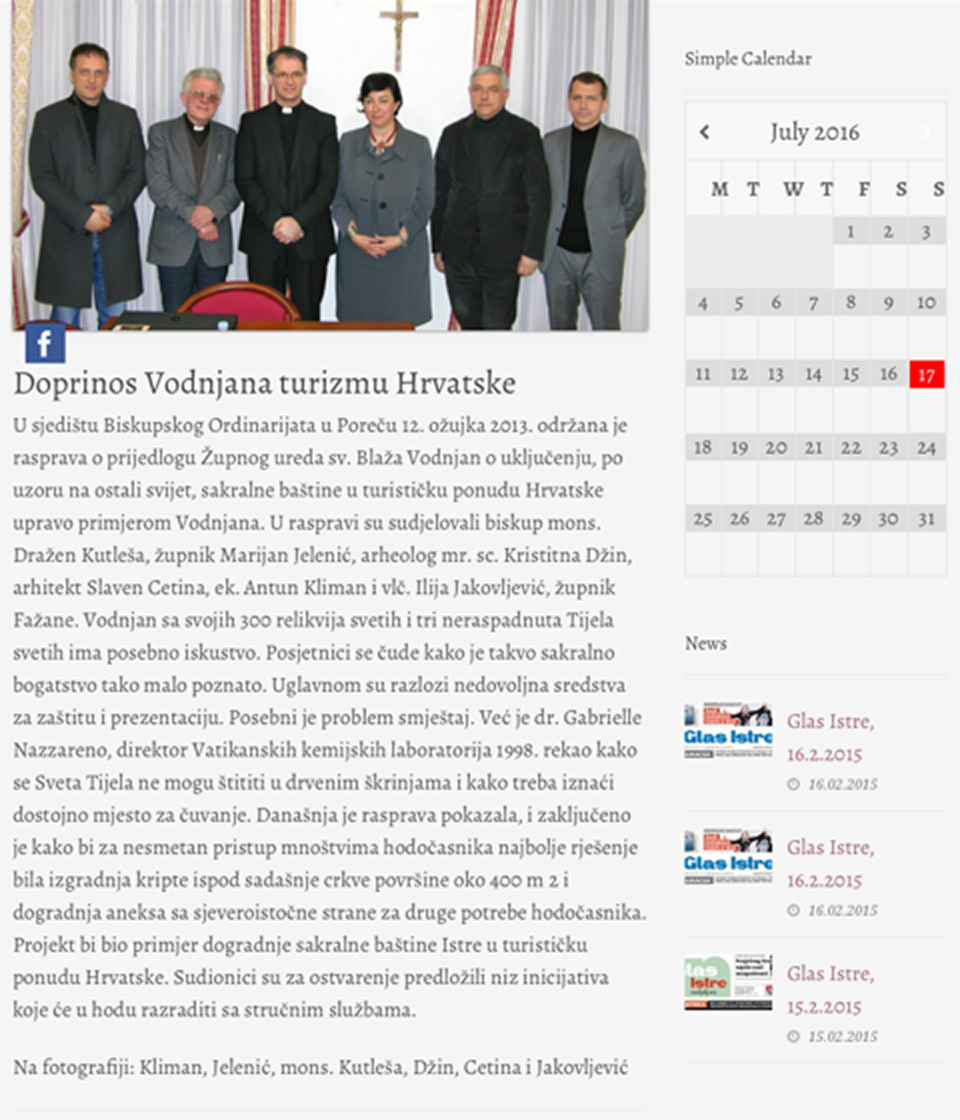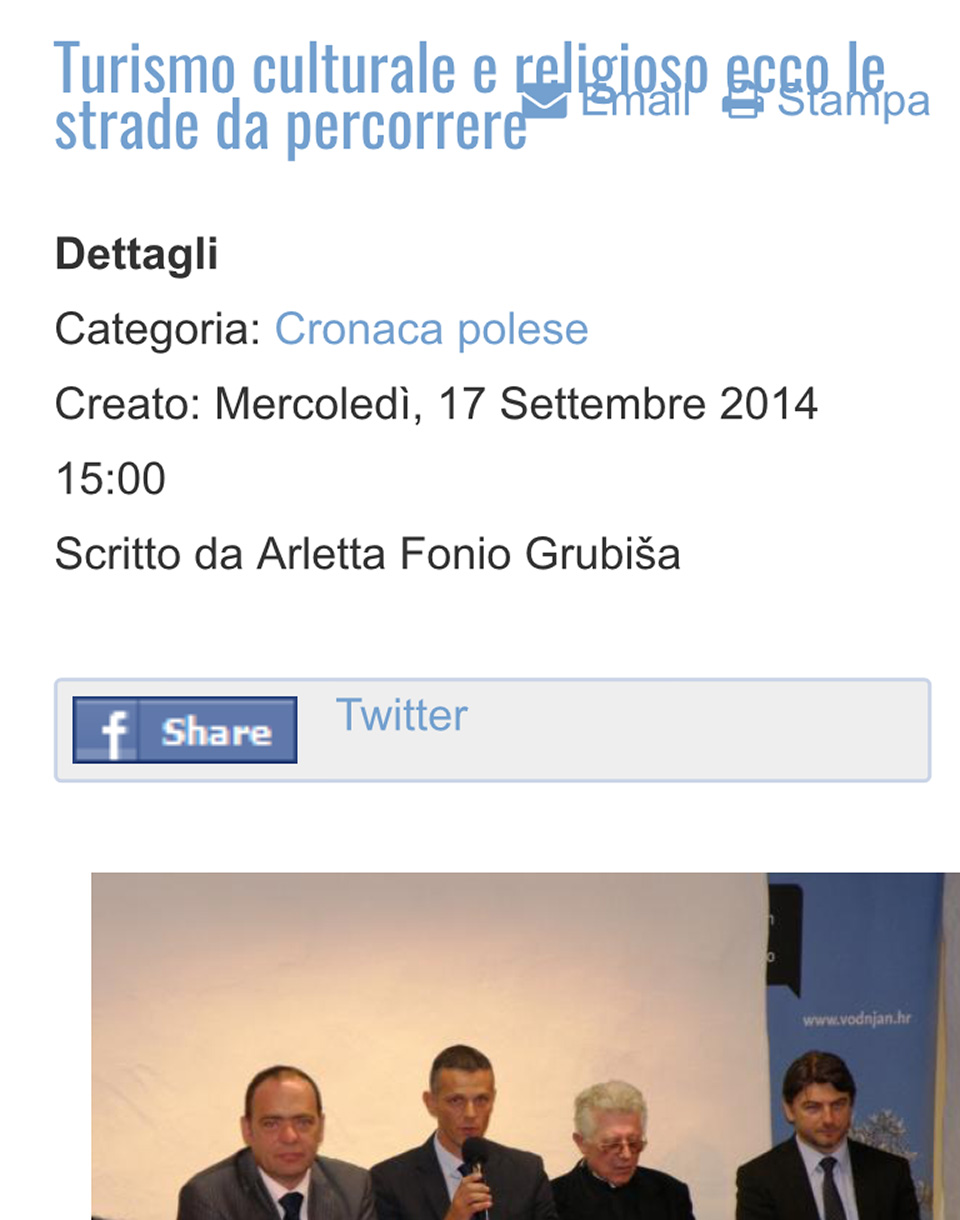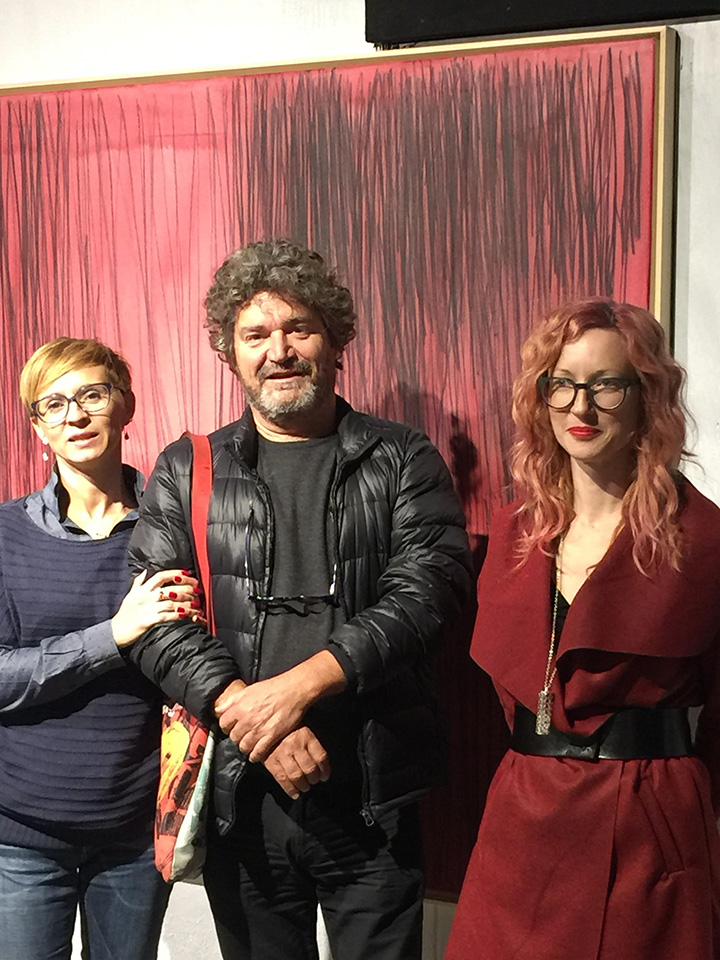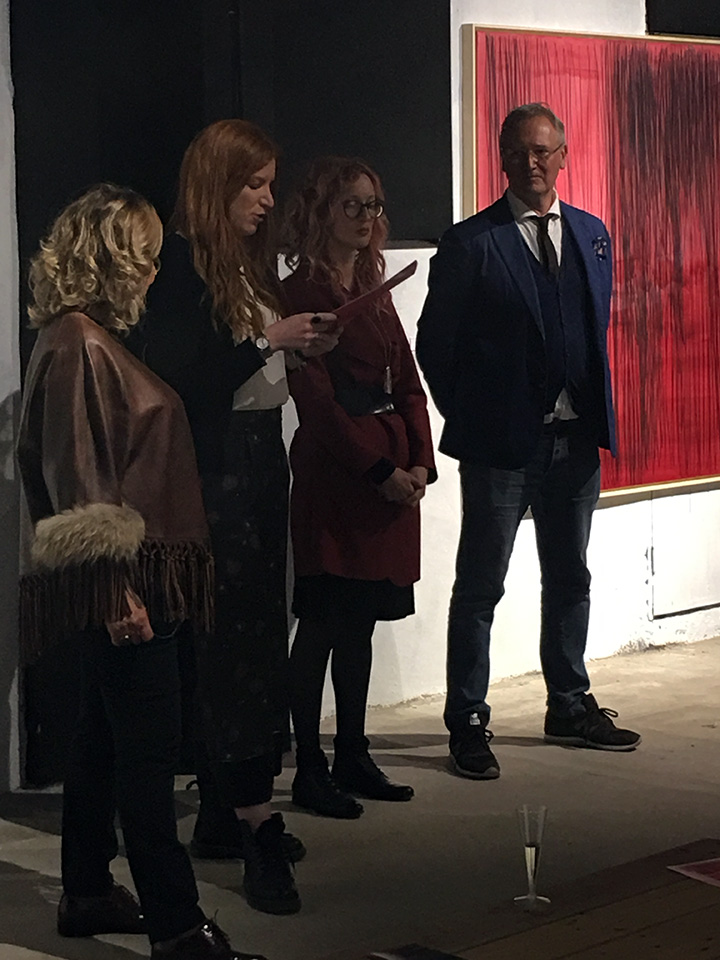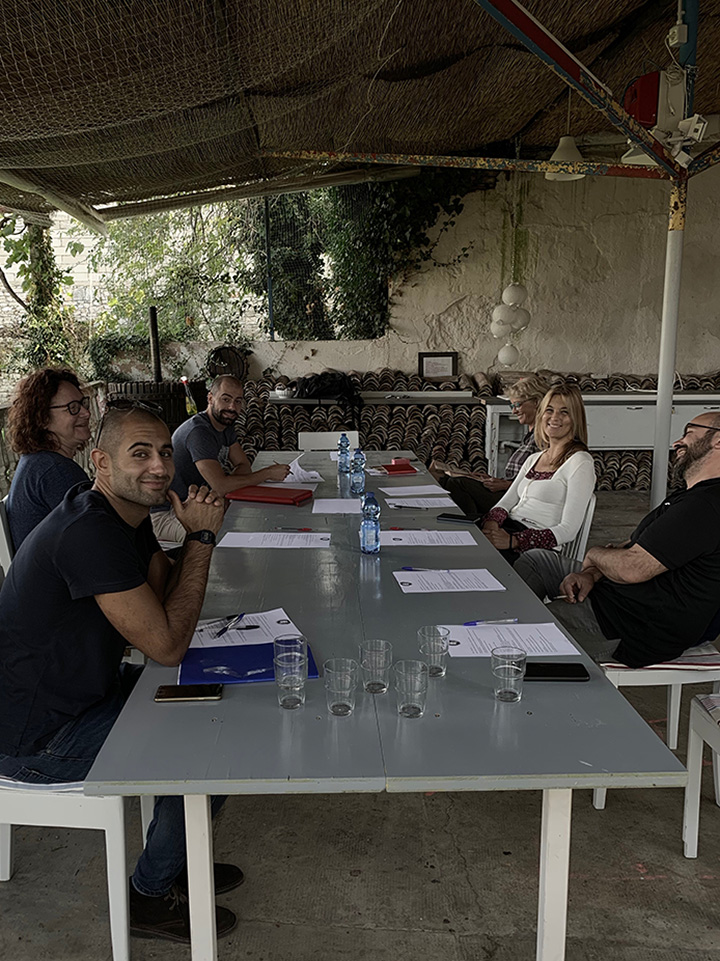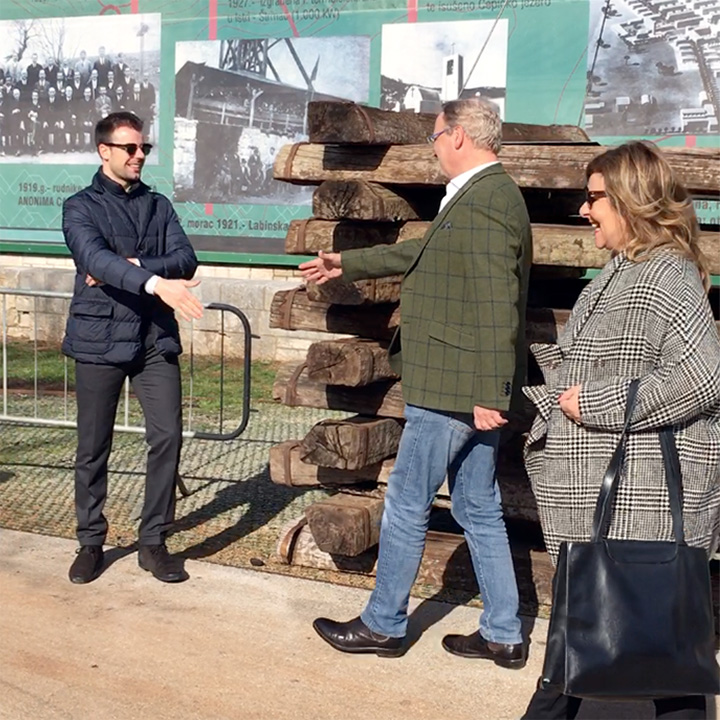
Meeting the European Arts Council at the Albona Bienale.
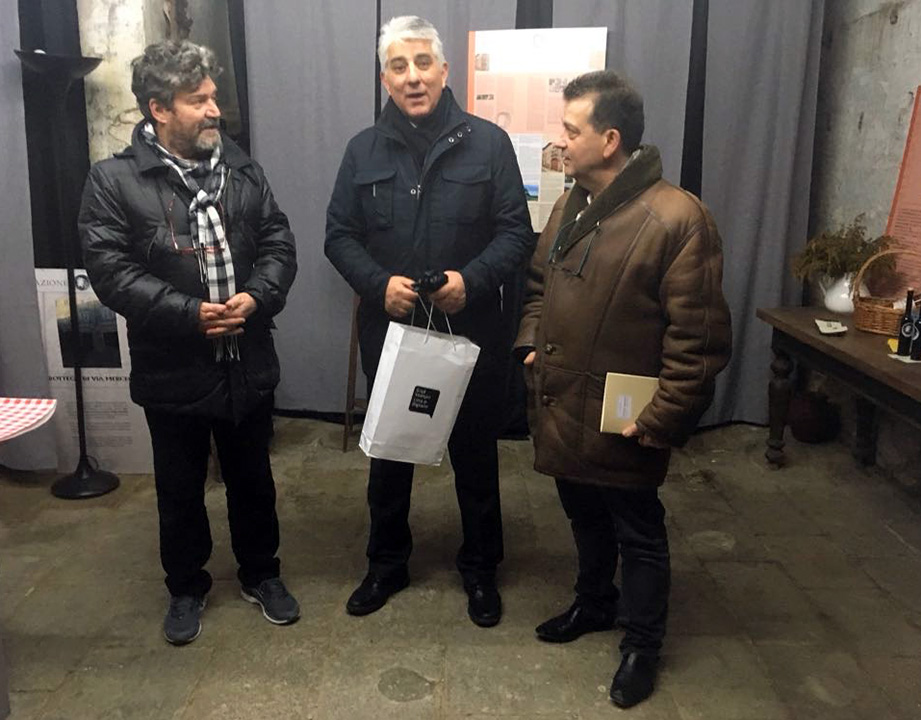
Meeting the representatives of the Greek mayors at the Malvasia in Venice and the director of Marco Polo System.
In Vodnjan, the Foundation began to address and provide an answer to a specific request.
Upon its arrival to Vodnjan, the Foundation established an active collaboration with local cultural entities. With Eco Museum Istrian de Dignan, it gave its contribution for an exhibition, later set up in a different manner, about Voivoda and about the use and valorisation of the first floor of Eco Museum.
The Foundation headquarters housed the centre for organisation of exhibitions and collaborations concerning the world of art.
The Foundation plans to organise a series of monographic exhibitions and encounters of artists and entrepreneurs, for instance, dealing with the oeuvre of the Istrian architects Pagano and Cozzi based on the study of our partner Stefano Murello, in collaboration with the Centre for Historical Research in Rovinj. It will support various activities in the field of culture and facilitate an encounter between artists and patrons. Fioranti Palace hosted the provisional headquarters of the European Art Council subsequently relocated to Labin, where it met artist Tea Bičić. Their encounter generated the Venetian exhibition Karbon.
We hosted the Croatian headquarters of the Marco Polo System Geie Foundation, which asked us to accommodate the representative of Greek mayors participating in the project The Mediterranean Malvasias and the Silk Road in Malvasia, Venice.
We also provided hospitality to participants of the YouInHerit project, offering typical Vodnjan products to participants coming from the all parts of Europe, as well as a study group for the thematic encounter Bauhaus in Israel.
Two days of encounters dedicated to restoration and conservation issues concerning modern artefacts and historic methods.
We keep inviting and proposing our cultural projects to authorities, institutions, economic entities and individuals ready to network, such as the Canti da Battello at the Batana Museum in Rovinj which will probably go through in the summer of 2020.
For a sustainable and lasting cultural offer that overcomes summer seasonality and provides both citizens and guests with year-round cultural events.
We intend to privately sponsor conservation and cultural pilot projects. If possible, we will be using community funds in compliance with guidelines and priorities defined by municipalities, regions and the state.
The following step involves the opening of the Diffused Ethnographic Museum, now missing in Istria, and the Diffused Museum of the Sea, already established in Labin, making it possible even for the smallest of towns to dedicate a few spaces to such a museum in Istria dedicated to local historical peculiarities.
The most important aim of all projects is creating the autonomous economy of scale with the valorisation of territorial resources and rural environment, without land take and uncontrolled urban development. Strengthening the local economy and boosting local job creation and the opportunities to develop cultural and medical tourism will generate new business opportunities and raise living standards for the entire territory and its residents, its landscape and nature.

